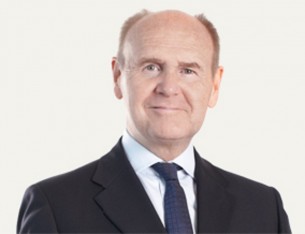East Midlands business leaders welcome PM’s industrial strategy

Prime Minister Theresa May’s Green Paper setting out her Government’s planned industrial strategy for post-Brexit Britain has been widely welcomed by East Midlands business leaders.
Central to the strategy will be new “sector deals” and “major investment” in research and development to support the “industries of the future” and create more high-skilled, high-paid jobs.
The Prime Minister told the regional Cabinet meeting that to succeed after leaving the EU the UK needs a strategy to create a group of new industries to challenge the companies of today.
May said: “The modern industrial strategy will back Britain for the long term, creating the conditions where successful businesses can emerge and grow and backing them to invest in the long-term future of our country.”
She said the Government would offer support to help firms address challenges specific to their industry including changing regulations to remove barriers to innovation, using trade and investment deals to increase exports and helping to create new institutions to provide leadership, support innovation and boost skills.
Life sciences, the transition to ultra-low emission vehicles, industrial digitalisation, creative industries and improving competitiveness and skills in the nuclear industry are among the first sectors expected to receive Government help.
The Industrial Strategy Green Paper, which will be subject to consultation before Ministers return with more specific proposals, also sets out ideas to bolster institutions in each part of the country to support that region’s specific strength.
That could involve building up local trade bodies, creating new educational institutions, making it easier for firms to access finance outside London or getting a stronger business voice into local government.

Scott Knowles
Scott Knowles, chief executive at East Midlands Chamber, said: “This is the strongest indication yet from Mrs May that she is listening to what our members are telling us they want, which is that business must be the focus of the Government’s Brexit strategy.
“Implemented correctly, the new Industrial Strategy has the potential to provide the strong foundation of business and Government working together to underline the development of a successful UK outside of the EU.”
Ursula Lidbetter MBE, chair of the Greater Lincolnshire LEP, said: “We welcome the launch of this major consultation on the new Industrial Strategy for the UK.
“It is important that businesses from all sectors in every part of the UK take this opportunity to have their say to ensure that we build an economy that works for everyone.”
Sir John Peace, chairman of the Midlands Engine, said: “I welcome the Government’s Green Paper on a Modern Industrial Strategy.
“[The] announcement underlines the Government’s commitment to the regions playing their full part in driving up growth and productivity. I welcome that. Britain often has great ideas, but too often others have made more of them, creating more jobs and generating more wealth, profit and other revenues. I agree that now is the time to start putting that right. I’m sure the focus on the importance of international trade, playing to our strengths and enabling

Sir John Peace
new sectors in all parts of the country will deliver the high wage, high skill economy of the future.
However, not everyone was as impressed. Will Rossiter, head of the Economic Strategy Research Bureau at Nottingham Business School, said: “The green paper identifies some sensible challenges but seems somewhat lacklustre by way of response.
“It rightly identifies the productivity challenge and the problem of regional and local disparities in economic performance. It also rightly identifies the importance of institutions, but without being very specific about the measures that will be taken to build and develop them.
“Continuing reliance on Challenge Funds, in this case an Industrial Strategy Challenge Fund, risks exacerbating differentials in performance as it is likely to go to those areas with greatest capacity to bid, rather than greatest need.
“The focus on digital and creative industries risks exacerbating regional differentials, given the geographic concentration of these sectors and activity in the South East.”
“Extension of the What Works Centre for Local Economic Growth is a mistake. It would be better to build institutional capacity at local and regional levels. Illustrative of one of the contradictions inherent in the approach described.”









